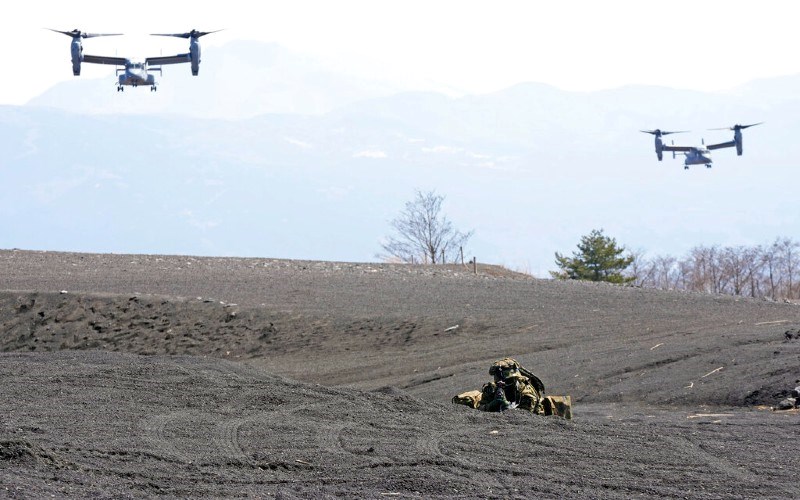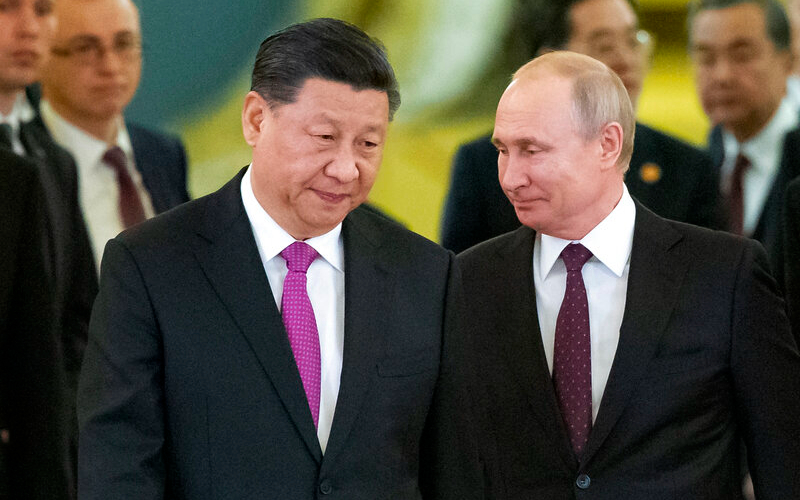In training that comes to an end Friday, 600 Marines from the 31st Marine Expeditionary Unit spent the past several weeks training with 400 troops from the Japanese Army's Amphibious Rapid Deployment Brigade at Camp Fuji, a U.S. Marine Corps training base located west of Tokyo.
In the face of growing threats from countries like China, North Korea, and Russia, Japan has been increasing its defense budget and capability in recent years. Such actions are imperative, according to retired U.S. Marine Colonel Grant Newsham, who became the first Marine Liaison Officer to the Japan Ground Self-Defense Force during his career.
In an interview with American Family News, Newsham describes the type of training taking place between U.S. and Japanese forces as "indispensable." Such bilateral training operations are allowing U.S. and Japanese forces to "integrate," he explains – "and without the experience, success in war cannot be expected."
The retired Marine Corps officer says countries "should not claim they are capable of fighting a war, [nor] that they have a strong military alliance, without repeated and complex on-the-ground practice."
The U.S. and Japanese navies have conducted training operations together for decades. However, the joint-training exercises are relatively new to the U.S. and Japanese ground forces.

"It's coming closer to the sort of training that countries have to do to be able to fight a war and be successful," Newsham asserts.
In the past, he suspects Beijing didn't put much faith in the ability of Americans and Japanese militaries to operate together with much success. "There was an alliance – in some respects – in name only," he admits. But in terms of operational capability, except for the two navies, "the Americans and Japanese could not fight together in any meaningful way."
But Newsham says the soon-to-be-concluded training is sending a clear signal to the Chinese regime, declaring that "Americans and Japanese are getting ready to fight if necessary – and that should cause the Chinese some concern."
And with the growing tension in the region between China and Taiwan, inviting the island nation into these types of joint-training exercises "should be done and could be done," according to Newsham.
"If America does not break the Taiwanese military out of its 40 years of isolation and start treating them like the partners and friends we claim they are, then we cannot expect that Taiwan would be able to put up as good a fight as it should when the time comes [to take on China]," the retired Marine officer emphasizes.
The military forces of the small East Asian country need to be training with foreign militaries, Newsham suggests. "The Taiwan military is not developed anywhere near where it needs to be," he adds.
And that, according to the retired officer, can be corrected very quickly. He recommends conducting a humanitarian assistance disaster relief (HADR) exercise around the island of Guam, involving the military forces of America, Japan, and Taiwan.
"They need to get out there and practice HADR exercises, [as] 90% of the skills required for such [exercises] are identical to those required for actual warfighting," he explains.
Newsham says this would not only be a great benefit operationally, but also psychologically – as it would bolster Taiwan's morale should the nation be forced to confront a military threat from China.







